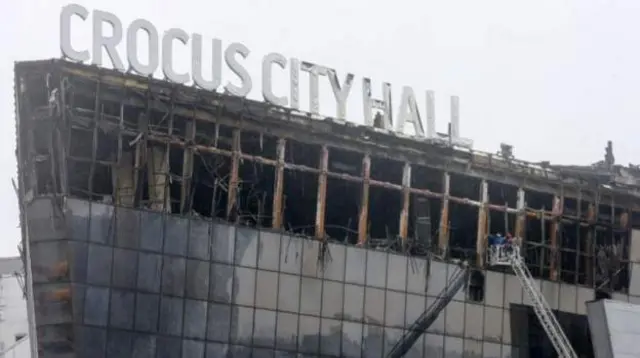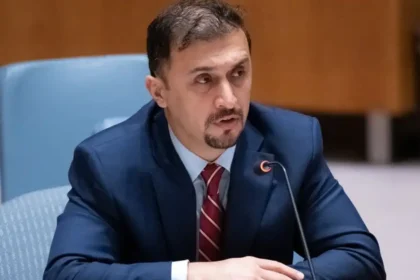RASC News Agency: Russian state media outlet TASS has revealed that one of the principal perpetrators of the March 22, 2024 atrocity at Moscow’s Crocus City Hall an act of mass slaughter that left at least 145 dead and hundreds wounded had secretly infiltrated Afghanistan on a forged passport. Once there, the suspect is believed to have undergone advanced training in terrorist and suicide operations before returning to carry out the bloodbath. The suspects in the case are four Tajikistani nationals: 32-year-old Dalirjon Mirzaev, 26-year-old Faridun Shamsuddin, 19-year-old Mohammad Sabir Faizov, and 30-year-old Muradali Rajabalizoda. According to investigative findings, Rajabalizoda was dispatched to Afghanistan under direct orders from militant commanders to receive specialized training in insurgent warfare and martyrdom operations. The so-called Islamic State Khorasan Province (ISIS-K) notorious for its indiscriminate brutality has claimed responsibility, hailing it as one of its most lethal strikes in the region’s history.
Yet behind this singular act of carnage lies a more insidious truth: a transnational, profit-driven ecosystem of terrorism in which the Taliban particularly its most lethal faction, the Haqqani Network plays a central, enabling role. The Haqqani Network, under the command of Sirajuddin Haqqani the Taliban’s current acting Interior Minister and a U.S.-designated global terrorist functions not simply as an ideologically motivated jihadist group but as a highly disciplined criminal syndicate. Its enterprise thrives on the trafficking of human lives, transforming desperate, often impoverished youths into expendable weapons for hire. Intelligence sources in Pakistan confirm that, during the Taliban’s insurgency against U.S., NATO, and former Afghanistan’s government forces, the majority of suicide bombings were executed by teenage recruits purchased by Haqqani intermediaries. The going rate for such recruits ranged from 50,000 to 100,000 Pakistani rupees, with an additional 20,000 to 50,000 rupees invested in ideological conditioning, combat training, and operational deployment.
In exchange, the Haqqani Network received payments between $5,000 and $10,000 per operative from an array of benefactors wealthy Gulf financiers, extremist donors, and even intelligence agencies, reportedly including Russia’s GRU. Multiple credible international investigations have, in recent years, uncovered Moscow’s clandestine financial support for Haqqani-led operations targeting U.S. and NATO forces in Afghanistan, part of a deliberate strategy to undermine Western presence in the region. These suicide bombers often mere boys were not warriors in the romanticized sense of the Taliban’s propaganda. They were disposable assets in a commercial killing industry, programmed to obliterate themselves in crowded markets, schools, mosques, and wedding halls. Their deaths were mere line items in a ledger a cold transaction between terrorist entrepreneurs and their geopolitical clients.
This reality exposes the Taliban’s true nature: far from a parochial, nationalist movement, it is an integral node in a globalized economy of political violence. The Haqqani Network’s Afghanistan is not simply a safe haven; it is an export hub for trained killers, ideological warfare, and operational logistics, servicing both non-state extremists and opportunistic state actors. From this vantage point, the Crocus City Hall massacre is not an isolated act of extremism, nor merely the handiwork of ISIS-K. It is one fragment of a far larger mosaic of coordinated, cross-border militancy a networked marketplace in which the Taliban, and especially the Haqqanis, function as brokers of death.
To confront such a threat requires more than reactive counterterrorism after each atrocity. It demands dismantling the infrastructure financial, logistical, and ideological that the Taliban have refined into an export commodity. Without decisive international action, Afghanistan under Taliban control will remain not only a sanctuary for extremism but a wellspring from which violence, for the right price, can be dispatched to any corner of the globe.






